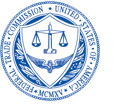Online Payday Lenders
If you need a short term loan, you may be tempted by ads touting online payday lenders. But before you click on a link, the Federal Trade Commission (FTC), the nation's consumer protection agency, has a cautionary tale to tell.
The FTC recently sued several online payday lenders for violating federal laws. The lenders allegedly lied about how much their loans would cost, required borrowers to allow the lenders to take money from their bank accounts automatically, and threatened to sue the borrowers or have them arrested for non-payment.
Here's how the scam allegedly played out: The online payday lenders required borrowers to provide bank account information so they could deposit the borrowed funds electronically and withdraw the repayment amount from the account later. The lenders claimed that the repayment amount would be the amount borrowed plus a one-time finance fee, and that this amount would be withdrawn on a particular date. Instead, the lenders made multiple withdrawals from the borrowers' bank accounts and assessed a new finance fee each time. The result of this scheme? The borrowers paid much more than the stated cost of their loans.
In a typical example, a person borrowed $300 with a stated one-time finance fee of $90. The borrower expected that the loan would be repaid in a single withdrawal of $390. But the lender began a series of automatic withdrawals, assessing a $90 finance charge each time. By the last withdrawal, the borrower would have paid $975 instead of $390 to repay the loan.
In addition to allegedly misrepresenting the terms of the loan, the lenders doubled as unscrupulous debt collectors who falsely threatened to sue the borrowers or have them arrested.
Shopping for a Loan
Payday loans can be expensive; other credit offers may come with lower rates and costs. It's important to shop and compare available offers before you decide to take out an online payday loan. When you are comparing credit offers, use the Internet or other sources to learn about the reputation of credit providers.
- Shop for the credit offer with the lowest cost. Try to find out the annual percentage rate (APR) and the finance charge (including loan fees and interest, among other credit costs) of different options before you select a credit offer. You are looking for the lowest APR. If you are shopping online and can't find the APR and the finance charge, visit lenders in person.
- Consider a small loan from a credit union. Some banks may offer short-term loans for small amounts at competitive rates. A local community-based organization may make small business loans, as well. A cash advance on a credit card also may be possible, but it may have a higher interest rate than other sources of funds: find out the terms before you decide.
- Contact your creditors or loan servicer as quickly as possible if you are having trouble making a payment, and ask for more time. Many may be willing to work with you if they believe you are acting in good faith. They may offer an extension on your bills: Find out what the charges are for that service. There could be a late charge, an additional finance charge, or a higher interest rate.
- Make a realistic budget, including your monthly and daily expenditures, and plan, plan, plan. Try to avoid unnecessary purchases: the costs of small, every day items like a cup of coffee add up. At the same time, try to build some savings: small deposits do help. A savings plan – however modest – can help you avoid borrowing for emergencies. Saving the fee on a $300 payday loan for six months, for example, can help you create a buffer against financial emergencies.
- Find out if you have – or if your bank will offer you – overdraft protection on your checking account. If you are using most or all the funds in your account regularly and you make a mistake in your account records, overdraft protection can help protect you from further credit problems. Find out the terms of the overdraft protection available to you – both what it costs and what it covers. Some banks offer "bounce protection," which may cover individual overdrafts from checks or electronic withdrawals, generally for a fee. It can be costly, and may not guarantee that the bank automatically will pay the overdraft.
This article was previously available as Fraudulent Online Payday Lenders: Tapping Your Bank Account Again and Again.

